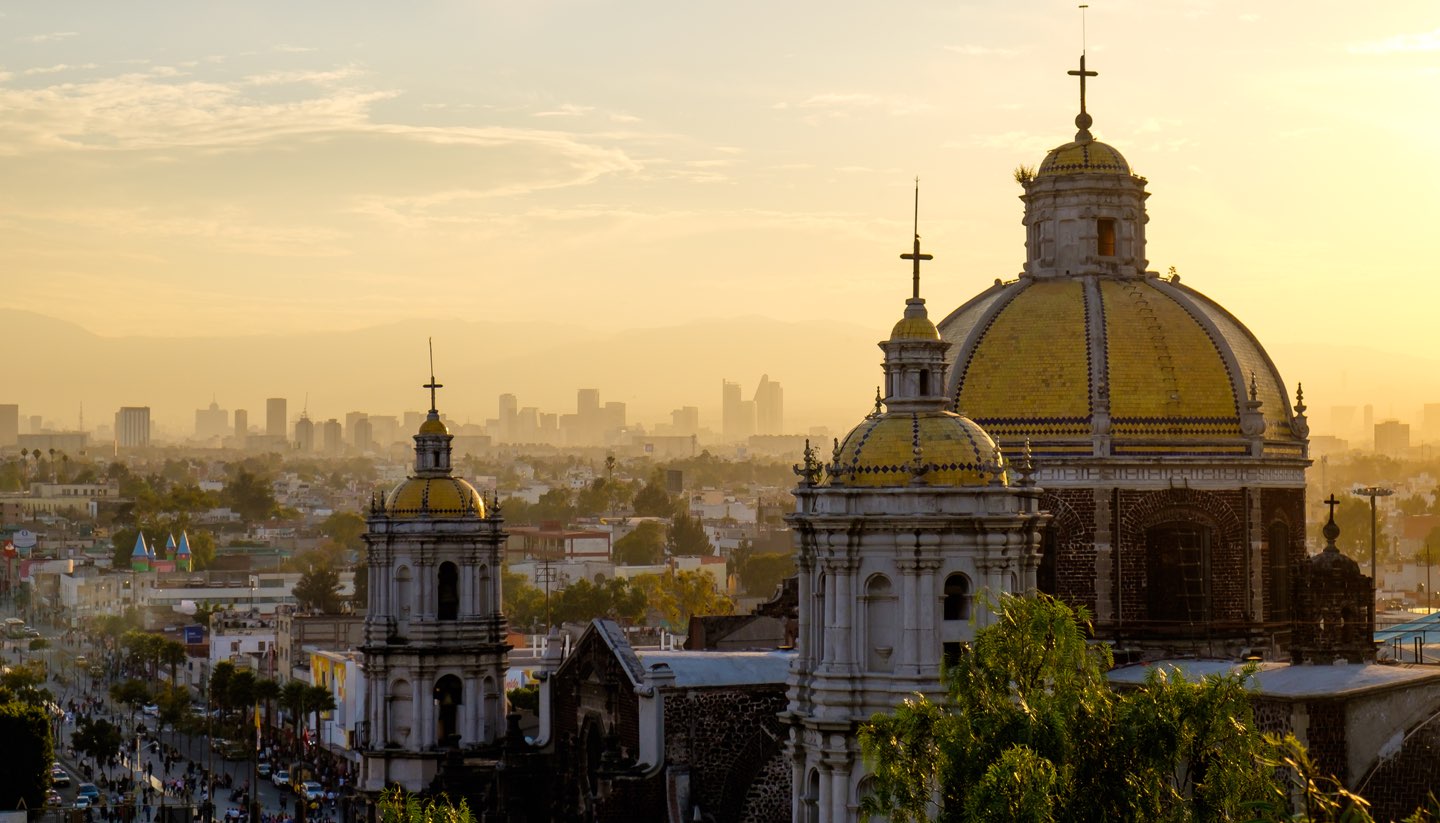Mexico City History
As it goes with other metropolises that were once founded by the Spanish conquistadores, Mexico City has its roots in a mighty seat of indigenous power.
But few others can match the Aztec city of Tenochtitlán. Based on Lake Texcoco, its architecture and engineering were so stunning that some of the first Spanish men to see it wondered if they were dreaming.
Little remains of Tenochtitlán, as Cortez and his followers immediately set about erecting a colony over the ruins of the city in 1525, though excavations such as that of Templo Mayor near the central square have revealed some of the Aztec glories that lie beneath the surface.
Although the location of Tenochtitlán in the middle of a vast lake made it nearly impossible to conquer, an ancient prophecy proved to be the Aztecs’ undoing. Moctezuma, the Aztec king, believed Cortés to be the feathered serpent-god, Quetzalcóatl, who had once been driven out eastwards; he was predicted to return to reclaim his throne in 1519, which turned out to be the year of Cortés arrival Mexico. After being courted by the Aztec ruler, the conquistadors went on to overthrow the empire with ease.
The emerging Mexico City soon had the largest mestizo (mixed European and indigenous) population in New Spain. A caste system developed, with those born in Spain highest-ranked, and criolles (those with up to 1/8th of indigenous heritage) second.
By 1821, Mexico gained independence, along with other Spanish colonies. A couple of decades later came war with the US, after which Mexico City was briefly occupied, and California, New Mexico and Texas were ceded.
Internal struggles followed, culminating in the revolution in 1910, which led to 71 years of one-party rule under the PRI (Institutional Revolutionary Party). Not until 2000 did another party assume the reins of power, although in 2012, PRI were swept back in. Today, sprawling Mexico City, which has grown to become one of the largest conurbations in the world, is home to the entire federal government.
Did you know?
• According to legend, Mexico City (or Tenochtitlán) was founded when the wandering Mexica saw an eagle eating a snake atop a cactus on an island in Lake Texcoco, fulfilling an ancient prophesy. It now adorns the Mexican flag.
• The Paseo road in Kansas City was based on Mexico City’s main avenue, Paseo de la Reforma.
• The Spanish eventually drained most of the lake that surrounded Mexico City, but is now said to be sinking. It is thought to have sunk by around 10m in 20th century.



